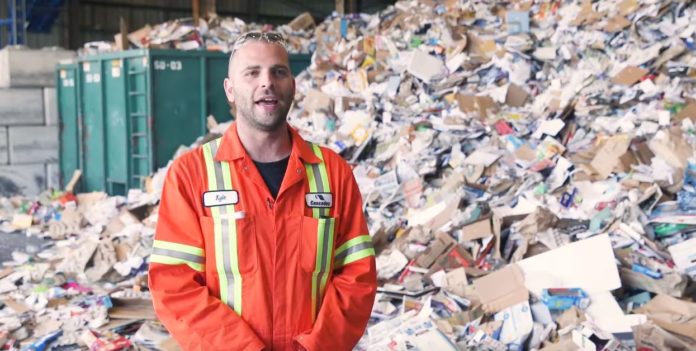Recycle BC is reminding residents to be mindful and cautious of what they put into their recycling after seven fires broke out in facilities this year, including some that endangered lives and closed facilities.
According to the province-wide organization, over two thirds of all recycling container loads had hazardous materials inside them, a dramatic 47% increase over the past 5 years.
See also: 10 unique ways to reduce your plastic consumption in Victoria
The most commonly found hazardous items include lithium-ion batteries and propane or butane canisters.
However, stranger and even more dangerous items have wound up in British Columbian recycling sites.
“Hazardous materials present a very real danger for workers in BC’s recycling industry,” said David Lefebvre, Director of Public Affairs for Recycle BC.
“Earlier this month a resident put 58 rounds of live ammunition into their recycling. We need people to think before they put something that is potentially explosive and deadly into a recycling bin.”
A list of the most common hazardous items found at Recycle BC facilities — which should be not be placed in residential recycling bins — include:
- Butane and propane canisters
- Batteries (especially lithium-ion batteries)
- Compressed gases
- Ammunition
- Knives
- Sharps
- Bear spray.
While knives and ammunition present obvious dangers to staff, the most significant hazards for recycling facilities are items that can cause fires or explode.
While Recycle BC has teams that are specifically trained to respond to fires quickly, materials that can easily smolder or spark can quickly spread through recycling facilities, as the areas tend to have large amounts of paper and easily flammable material.
Meanwhile, if compressed gas containers or explosive materials are triggered, the rest of the items processed at recycling sites can turn into shrapnel and pose a serious danger to employees.
“Hazardous materials have a significant impact on our staff,” said Alisa Murray, Health and Safety Coordinator at Cascades Recovery, a recycling centre located in Victoria.
“We are concerned about their safety and the potential for someone to be injured or worse.”
According to Recycle BC, hazardous materials should not be disposed of in the regular recycling or waste system. For information on where to dispose of dangerous items, residents can contact the Recycling Council of British Columbia at 1-800-667-4321 (toll-free) or 604-732-9253 (Lower Mainland)



